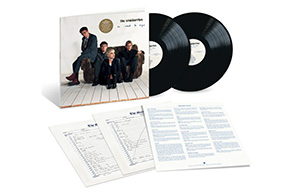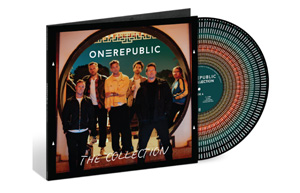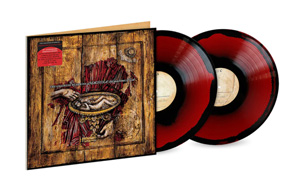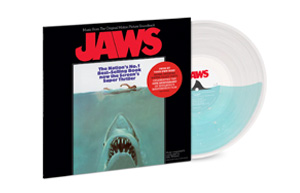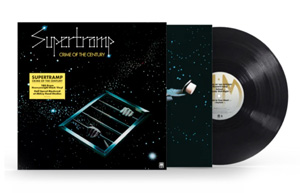Roll Over, Beethoven: Chess Records And The Rock’n’Roll Revolution
One of the greatest independent labels in history, the music of Chess Records still sounds revolutionary.
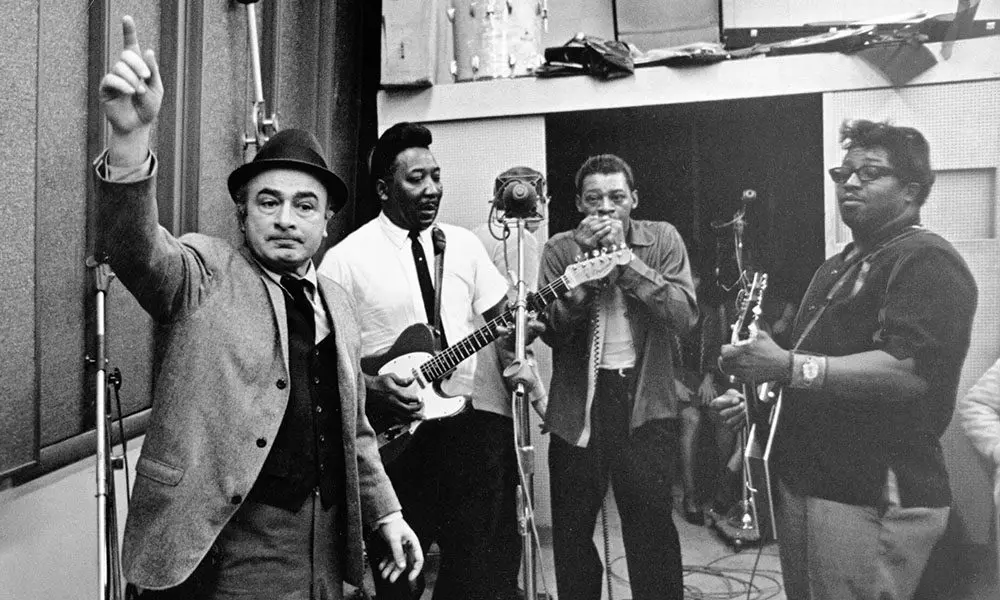
One of the most-repeated stories about the history of Chess Records sees The Rolling Stones, on their first visit to the US, arriving at the label’s studios to record, only to find their hero, Muddy Waters, at the top of a stepladder, roller in hand, painting the ceiling. The story is supposed to illustrate the disdain with which black musicians were treated in their own country, but did it actually happen? Is there any truth to this legend? “No truth in it at all,” insists Marshall Chess, son of Chess Records founder Leonard. “But Keith [Richards] maintains to this day that it actually happened… I guess people want to believe that it’s true. It says something about how unfashionable the blues had become at that time.”
That pretty much everyone else who was there, from the other Stones to Muddy himself, has categorically denied the story never seems to get in the way of it being trotted out. And while Marshall may point to the story as an example of the unfashionable nature of the blues at that time, it is undeniable that Chess Records – and its founders, Polish immigrant brothers Leonard and Phil Chess – played a bigger part than any other record label history in making the blues a worldwide phenomenon.
Listen to the best of Chess Records on Spotify.
Polish Beginnings
Yasef and Cyrla Czyz lived in the small Jewish town of Motele, Poland. To describe their living conditions as basic would be to put it mildly, and, like many of their compatriots, the Czyz family dreamed of a new life in the United States. Yasef was a shoemaker while Cyrla looked after their three surviving children (three others had died), Malka, Lejzor and Fiszel. Cyrla’s uncle Yossel Pulik had moved to the States at the turn of the century, settling, alongside some 100,000 other Jewish immigrants, in Chicago.
By the early 20s, Yossel’s shoemaking business was going well enough to send for more family members to make the journey to the New World. Along with his nephew, Cyrla’s brother Moische Pulik, Yossel invited Yasef. It would be a further six years before Cyrla and the children were able to follow Yasef across the Atlantic. Even then, the journey was fraught with tension, not least as Lejzor had developed problems with his leg, necessitating his wearing a brace to walk. Fearing refusal at Ellis Island’s immigration gateway, where only the fit and healthy were generally welcomed, Cyrla made the boy walk unaided through customs. As was standard practice, by the time the family arrived in Chicago, they had taken on new American identities. And so it was that Celia, May, Leonard and Philip were introduced to Joe Chess. “This is your father,” she told little Philip.
Life in Chicago
Joe Chess was a hard-working man who ran a number of businesses with his brother-in-law, by now renamed Morris. But when the latter was killed by a car in 1940, Joe took on a new partner – his eldest son, Leonard. Phil, meanwhile, was enjoying the football scholarship that took him to Bowling Green University in Kentucky. Leonard was soon married to Revetta Sloan, and the couple took up lodgings in a white area that bordered one of Chicago’s growing black neighborhoods, where they soon had a son, Marshall.
Chicago was an obvious draw for poor, southern African-Americans. Up the Mississippi from Memphis, the rapidly expanding metropolis offered an escape from the cotton plantations of the South.
Once Philip had returned from college, he too was incorporated into the family business, which Joe proudly named Chess & Sons. They ran a junkyard, close to a small black church where gospel music spilled out – the Chess brothers’ first exposure to the infectious sound of black music. As Phil recalled many years later, “Right across the street was a church. They’d start on a Friday night, hands clapping, and shouting, man, and I tell you, it was great. The whole nucleus of the thing started right there.”
The Macomba Lounge and the beginning of Chess Records
Leonard first stepped out on his own when he took over a liquor store at 5060 South State Street, in the heart of the black community. He moved through a series of enterprises that offered liquor and music, eventually establishing the Macomba Lounge around 1946, a notorious after-hours club popular with musicians, prostitutes and drug dealers.
Situated at 3905 South Cottage Grove, the Macomba was a good business, albeit a lively one, with guns and knives a common site. It was a place where musicians could come in and jam all night. It wasn’t the blues or gospel of their roots that would fill the hot, smoky Macomba air, but bebop jazz. Stars such as Ella Fitzgerald, Louis Armstrong, and Dinah Washington are all said to have dropped in for a late-night session.
After the club burned down, the Chess brothers decided to follow music, having joined forces with Evelyn Aron, who ran Aristocrat Records, with Leonard first buying a stake in the label in 1947. By 1950, they had bought the company outright and changed its name: Chess Records was born.
They took up residence at South Cottage Grove Avenue, from where the operation would grow into one of the most influential labels in American music history. Their first recordings would, naturally, include artists they’d brought with them from Aristocrat. Their first release on Chess Records was Gene Ammons, a tenor sax player, with his take on “My Foolish Heart,” a popular hit of the day. The brothers gave it the catalogue number 1425, after their first home in the United States, at 1425 South Karlov Avenue.
Muddy Waters
McKinley Morganfield, known to the world as Muddy Waters, was first recorded by the folklorist and archivist Alan Lomax in the early 40s, before moving up from rural Mississippi to Chicago in 1943, in the hope of making a name for himself as a musician. Trading his acoustic guitar for an electric model with an amplifier – “Couldn’t nobody hear you with an acoustic” – he eventually began recording for Aristocrat Records. In 1948, he had hits for the label with “I Can’t Be Satisfied” and “I Feel Like Going Home.”
Released in early 1950, Chess 1426 was Waters’ first record on Leonard and Phil’s new imprint. Based on the old Delta blues standard, “Catfish Blues,” it went by the name “Rollin’ Stone.” While it wasn’t much of a hit, over a decade later the song would provide the name for a band of young Chess obsessives from the UK, who would take the label’s music to the whole world.
Muddy Waters is perhaps the biggest name associated with Chess, but many of his most successful records were written by a former boxer from Mississippi who had first encountered the Chess brothers at the Macomba. Willie Dixon, who stood at around six foot six and weighed in at some 250 pounds, was a formidable figure to have about the place, and, by the early 50s, he was a staffer at Chess. A songwriter, bass player, producer, and all-round helper-out, Dixon wrote “Hoochie Coochie Man’, “I Got My Brand On You” and “I Just Want To Make Love To You” for Muddy, as well as “Little Red Rooster” for Howlin’ Wolf, “My Babe” for Little Walter and “Pretty Thing” for Bo Diddley. He would be a fixture at the label for many years and his influence can never be overstated.
The label’s first big hit
As with many independents, Chess Records was run by establishing firm links with other small companies. And so it was that Leonard would spend much of his time on the road, pressing the flesh of DJs, record promoters, pressing plants and distributors, mainly around the South. It was through this work that he established a strong friendship and mutual partnership with Sam Phillips, who ran the Memphis Recording Service (later immortalized as Sun Records). Phillips would often share his recordings with Leonard, and it was one such offering that gave Chess its first smash – and cemented its place in the history of 20th-century music. “Rocket 88,” issued as Chess 1458 in 1951, has been cited by many as the first rock’n’roll record. Credited to Jackie Brenston & His Delta Cats, the band was actually Ike Turner & His Kings Of Rhythm. It climbed to the top of Billboard’s R&B chart, where Muddy Waters was also enjoying some chart success with “Louisiana Blues” and “Long Distance Call.”
Muddy Waters wanted to change his sound; Leonard was resistant. After all, you don’t mess with a winning formula, and, while Leonard respected Muddy, the pair having formed a strong and lasting friendship, they were coming at this from different perspectives. Muddy wanted to bring to the studio his drummer, Elga Evans, pianist Otis Spann, guitarist Jimmy Rogers, and the precocious young blues-harp player, Little Walter, with whom he was building up quite the musical rapport in his live show.
A Billboard chart-topper
Eventually, Waters got his way, and brought his house band into the studio. And it was on an early session together that the band found themselves having finished their day’s work with time to spare. They decided to make use of the spare time by recording an instrumental that showcased Little Walter’s blues harp. By amplifying his harmonica, Little Walter created a unique sound, which he exploited yet further by playing the instrument more like a saxophone than traditional blues harp. In 2012, Marshall Chess told Sabotage Times quite how highly Walter was rated: “Miles Davis once said to me that Little Walter was as much a musical genius as Mozart and I wouldn’t disagree. The way he played harmonica completely transformed the blues. There was nobody at Chess more talented than Little Walter.”
Released under Little Walter’s name, “Juke” would go on to top the Billboard R&B chart for eight weeks, providing the Chess brothers with their biggest hit so far, and cementing Walter’s place in the Chess Records family.
“Juke,” however, wasn’t issued on Chess, but on the brothers’ subsidiary label, Checker Records. It was common practice at that time for a successful label to spawn subsidiaries. The thinking was that a DJ would generally only play a certain number of records from any one label on any given show. The solution was simple: create a new label, and you could theoretically double the number of plays you could garner.
Checker had been conceived as a country outlet by the Chess brothers but, in reality, was everything but, posting hit records from Sonny Boy Williamson II, such as “Don’t Start Me Talkin’” in 1955; Bo Diddley’s eponymous debut that same year, which hit the top of the Billboard R&B chart; and “Suzie Q,” a rockabilly hit by Dale Hawkins that broke the Top 30 of Billboard’s Hot 100 in 1957.
With the success of “Juke,” Walter left Muddy’s band to strike out as the bandleader he’d always dreamt of being. Little Walter And The Jukes would go on to have many Top 10 hits on the Billboard R&B chart through the 50s, including the Willie Dixon-penned No.1 “My Babe.” But his struggle with alcoholism and knack for getting into fights saw Walter’s stock take a downwards turn by the end of the decade. Though he twice toured Europe in the 60s, he would never regain that spark that set the charts alight. He continued to record for the Chess brothers, however, including the 1967 album Super Blues, alongside Bo Diddley and Muddy Waters. Just over 12 months later, he was found dead at the age of 37.
The importance of Chicago in Chess Records’ success
Marshall Chess would later attribute much of the label’s success to the fact that the Chess family lived and worked within the black community, rather than trying to make a living out of it. The brothers saw themselves as immigrants – no different to the black musicians who had moved north to escape the hardships of the South, their sound evolving into something new in Chicago: the Chicago blues.
Marshall Chess explained to filmmaker Marc Levin how the Chicago blues evolved: “The electric sound never had a chance to build in the South because these little juke joints they played didn’t have electricity, most of them. They came up [to Chicago] singing more like the Delta Blues, and when they got to the big city where they had clubs, they plugged it into the wall, made it electric – boom!
“Chess Records, man, it was full of immigrants. All the artists came up from the South, and my family, they came from Poland. The black artists came from Mississippi, from Arkansas, up the Illinois central railroad from Memphis to Chicago. Our family came from Poland, by boat to New York and then by rail to Chicago.”
The partnership with Sam Phillips
Leonard’s friendship with Sam Phillips in Memphis continued to reap rewards for the Chicago label, most notably a singer and guitar player who went by the name Howlin’ Wolf. A giant of a man, Wolf would slit the sides of his shoes to allow his vast feet to spill out the sides. His first Chess Records release was “Moanin’ At Midnight,” which showcased his trademark gruff moan and howling vocal delivery as well as his insistent guitar style. It was a hit, the first of many on Chess for the man they called The Wolf.
As well as blues, Chess Records and its subsidiaries had great successes in other fields – notably the doo-wop of The Moonglows with their smash hit “Sincerely.” But not everything was rosy in the Chess garden. A falling out with Sam Phillips over who should pick up the tab for a Jackie Brenston & The Delta Cats promotional tour ended the lucrative partnership. Many years later, Leonard reflected: “If I hadn’t a-messed up, I could have had Elvis and Jerry Lee Lewis.” Phillips replied sagely, “Yes, you could have.”
Chuck Berry
But for every missed opportunity, many more were taken. And Little Walter wasn’t the only Chess hitmaker brought to the fold by Muddy Waters. Chuck Berry had been peddling a mix of country, blues, and R&B in his hometown of St Louis, Missouri, for a couple of years before he arrived in Chicago in 1955. Muddy recommended Berry to Leonard Chess, who was attracted by Berry’s reading of “Ida Red,” a country fiddle tune made famous by Bob Wills And His Texas Playboys. Berry adapted the song into his own “Maybelline,” and Chess had a million-seller on its hands.
Berry enjoyed a string of hits over the next five years or so, including “Johnny B Goode,” “Rock’n’Roll Music” and “Sweet Little Sixteen.” Berry’s huge popularity took Chess Records to an ever-widening audience.
A new headquarters for the label
Not long after Berry joined the label, the Chess brothers moved to new headquarters at 2120 South Michigan Avenue. As Marshall would tell Elijah Wald in The Guardian: “South Michigan Ave was called Record Row – there wasn’t only Chess: Vee-Jay records was across the street, with five or six different distributors. We had a narrow two-story 20s Chicago building. The offices were on the first floor and the studios were on the second floor.”
Marshall continued: “In the front, there was a waiting room – a wall with a window in the door, because a lot of people who came to Chess Records weren’t happy. Like, ‘Why isn’t my record a hit?’ Billy Stewart, the R&B artist, pulled out a pistol and shot the door because they wouldn’t let him in quick enough.
We were dealing with blues artists… 80 percent of them were drinking. There was a lot of yelling, a lot of calling people ‘motherf__ker,’ and fighting. Blues artists, often you could give them $2,000 on Friday and they’d be broke by Monday. Then they’d come in and say, ‘You f__ked me – where’s my money?’ You couldn’t be an angel and run Chess Records in the ghetto in Chicago.”
By the end of the 50s, the hits were flowing and Chess Records was well established. Its reputation brought all comers through that door with the window. One of the most important was also one of the more dramatic.
Etta James
As Marshall Chess told Sabotage Times, “Etta James was someone who knew how to make an entrance. I was in the Chess building when she first turned up in 1960. She walked down this narrow hallway and there was no missing her. She was a big lady in those days, maybe 200 pounds. And she was the first black woman I’d seen with blonde hair. She had quite an entourage with her – a hairdresser, a dressmaker, a bull dyke lesbian dressed as a man, even a midget. It was like a live-action Fellini movie. I never did find out the midget’s role in all of it. Etta always liked an entourage. She was a colorful character… She was out there. And she had this voice that my father knew how to get the best out of.”
James would record some of the most striking and enduring records ever cut by the Chess brothers. Her debut long-player was released on another Chess Records subsidiary, Argo Records, and spawned a number of hits, notably the title track, “At Last,” which became James’ signature song. Rolling Stone magazine would later include the LP in their list of the 500 Greatest Albums Of All Time, at No.119. Its powerful, soulful delivery, backed by lush strings and jazzy rhythm section has been an influence on everyone from Dusty Springfield to Amy Winehouse.
Finding success overseas
And yet, despite such a roster, which by now also included rock’n’roll pioneer Bo Diddley and R&B sensation Sugar Pie DeSanto, it was still virtually impossible for Chess’ black artists to achieve any crossover success – in America at least. On the other side of the Atlantic, however, their records were kicking up a storm that would soon expose the label to the record-buying public of the world.
The Beatles and The Rolling Stones had been playing covers of records released by Chess, Stax, Sun, and other southern labels for a long time before they found themselves cutting their own discs. And when they arrived in America as stars, they and other British Invasion acts were shocked by how little-known many of their heroes were in their homeland. After The Beatles landed in the US, Paul McCartney revealed that they were keen to see Muddy Waters and Bo Diddley. When a reporter showed his ignorance, replying, “Where’s that?” McCartney asked him, “Don’t you know who your own famous people are?”
The 60s and beyond
The 60s would be a lucrative time for the label, adding more artists, such as Koko Taylor, Buddy Guy, Junior Wells, and Otis Rush, while continuing to further develop their existing catalogue of stars. The label moved to a new home, where they could take care of every aspect of the record-making process all under one roof, at 320 East 21st Street. “It was an amazing building, man,” explains Marshall in the film Godfathers & Sons. “Studios, pressing, printing, mastering – you could record there on Friday morning and have a record by Saturday noon.”
The Chess brothers were always sure to keep abreast of changes in the popularity of various styles – their signing of Chuck Berry had been in response to a perceived dip in the fortunes of the blues – and, as the 60s wore on, so Chess Records looked to embrace the changes. The mid-60s saw the label and its subsidiaries fire out a sensational run of soul hits, many of which would become treasured by Northern soul fans. Among them was “Rescue Me” by Fontella Bass, “Wade In The Water” by Ramsay Lewis, and the storming “Tell Mama” from Etta James, which featured some of the sharpest horns in the whole soul canon.
By the end of the decade, the attraction of running a label was waning for Leonard and Phil. They had established an excellent business in the world of radio, and were considering moving into television, when, in 1969, they accepted an offer of $6.5 million to sell their shares in the company to General Recorded Tape (GRT). Within months of the sale, Leonard collapsed and died of a heart attack. And while Chess Records would continue in various shapes and forms for some time yet, the years of its pioneering of black music in America were largely behind it.
Ironically, the biggest hit Chess ever released came after the sale, with Chuck Berry’s “My Ding-A-Ling,” which went to the top of the Billboard Hot 100. Phil retired to Arizona, emerging from time to time to receive industry awards. He died in 2016 at the age of 95. Marshall remained in the record business, running The Rolling Stones’ own label. The Chess catalogue has remained in demand ever since, from the Northern soul movement and mod revival, through being sampled endlessly by hip-hop acts. There have also been a number of movies based on the label’s artists, perhaps most notably 2008’s Cadillac Records, which starred Beyoncé as Etta James. Though while the film captures much of what made the label great, most of its plot is pure fabrication.
Long after the poor Polish immigrants closed those famous doors, the influence of their life’s work continues to be felt today. Chess Records remains one of the greatest independent labels in history, and its music still sounds revolutionary.






